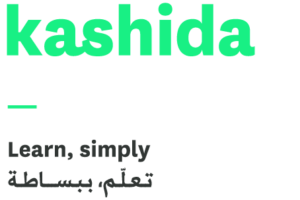The Rowad Nomou Program By SEDCO Holding
Background Story
As part of our work for a client based in Saudi Arabia on their CSR initiatives, we designed and developed the Rowad Nomou program, which aims to enable founders of innovative and technology startups that have reached the growth stage to gain the needed knowledge on how to grow their business through external financing.
Rowad Nomou comes as a sequel to a previous course—the Rowad Bidaya course—which we had developed for the same client. It focuses on basic entrepreneurial financial literacy for those who are starting a business.
One of the needs for Rowad Nomou came from recognizing a gap in the Saudi—but also global—entrepreneurial ecosystem with regards to educational programs focused on the growth phase within the business lifecycle. Another need came from the emphasis that was placed on "building a vibrant and prosperous private sector" as part of the Saudi Vision 2030.
Both courses are part of the Rowad program and are open for anyone to enroll for free.

Program Design
Inspirational Speakers
Entrepreneurship—like many disciplines in life—is both an art and a science. It is important for entrepreneurs to gain a wealth of knowledge about how to grow a business, but it is equally important for them to hear the stories of others who have put this knowledge into practice and succeeded! This is why we started each module with an inspiring introductory video by a successful Saudi entrepreneur who is well known in the country's startup ecosystem, in which he/she shares insights from their journey that are relevant to that module's topic.
Microlearning
Entrepreneurs are busy people, working day and night to run a business. Their knowledge and skills needs are high, but the time they can spend acquiring this knowledge is low. With that in mind, we built the course as a self-paced collection of microlearning units, each between one and three minutes long, to address one specific point. In total, the course includes about 150 units.
Non-Linear Structure
Recognizing that each entrepreneur has a different level of previous knowledge and current needs, we wanted to make sure that the course easily answers the questions they have at any point in time during their growth journey, particularly as they seek investment. Therefore, we designed a non-linear structure for learning content relevant to each of the phases of funding for growth, starting from assessing the need for investment or other funding options to due diligence and securing investment. Whereby entrepreneurs navigate the course content to identify the relevant units and immediately access them with no need to complete any prerequisite units.
Social Media-Type User Interface
The course interface was designed to match this non-linear approach to learning. Each section is comprised of a gallery of thumbnails captioned by descriptive titles for the specific piece of knowledge or skill the unit holds, with the look and feel of a social media board. This encourages the learner to select what they find interesting on demand by browsing to find a specific unit or coming across one that they need—all the while relieving them from any pressure or requirement to finish the course, but rather encouraging them to go through it on a need basis.
Accommodating Learning Styles
Entrepreneurs—like all learners—differ in their preferred learning style. Some are mostly visual learners, others lean towards auditory learning, and the rest are more comfortable with kinetic learning. For that reason, we integrated a variety of different digital learning assets, including infographics, animations, and interactive objects. We also included one multiple-choice per unit that is optional for the learner to take, and they can retake it as many times as needed. The purpose is not to test them but rather to give them the chance to recall the knowledge gained, which is an effective way to support knowledge retention.
Optional Certification
We also recognized that some learners are motivated by the possibility of gaining a certificate of completion, while others are not. Therefore, we created a simple condition for those who would like to earn a certificate that does not impact the learning journey of those who are not aiming for that. Simply put, to earn a certificate, a learner needs to successfully complete 60% of the course unit questions in no particular order or time.
Multiple Course Languages And Glossary
As for languages, Saudi Arabia is no different from many countries in the world. English is a commonly used language of business. In response to that, we developed two versions of the course: one in English and one in Arabic. And we didn't stop there! We noticed that translating some of the business terms from English to Arabic was not straightforward in this sector—sometimes there were no references for such terms to be found, and sometimes, different sources cited different translations. There was a clear need for a consolidated database as a reference for the English terms and their Arabic equivalents. So, we created a complementary tool to the course, which is a glossary of the most used business terms in both languages, along with their definitions and alternative terms. This tool was made accessible to the public, and not only to registered course participants.
Context-Specific Information
While many of the main entrepreneurship principles hold true all over the world, it is vital for entrepreneurs to understand the specific ecosystem in which they operate. We integrated units that specifically address this need for Saudi-specific information and included references to the key institutions in the Saudi market that are playing an important role in the Saudi startup ecosystem.
While the Rowad Nomou program is still young, its potential to create impact is powerful. Not only that, but its design also allows to expand on its content in response to changes in the entrepreneurial scene, making it future-proof as we look forward to the years to come.






